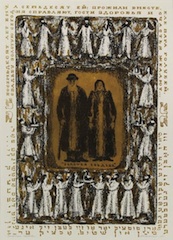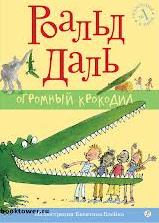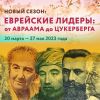In the past weeks, Booknik communicated with Shakespeare’s co-author, argued with Landau, studied snake habits, went to Israel to procure a New Year tree, waited for the end of the world, and never got it. Meanwhile, Booknik Jr. promised never to hurt his mama, and found out that a book is the best present ever.
The Beauty of Never
Stroheim, by Arthur Lennig
In America, the dreamer and charmer Erich von Stroheim lived all his life projecting the image of a man who is nice to hate. He played the roles of villains and perverts, made the longest movies in the world, wrangled with producers, and tortured his crews. He had twenty-hours working days in his locations, his scripts were Talmud-long, and his successes were almost no different from his failures. Booknik’s literary and film critic Dina Suvorova shares her impressions after reading the monograph by Arthur Lennig on Erich von Stroheim. It is almost as long as his character’s film scripts.
…and many other cinematic sesams in the Books & Reviews section.

Yuly Kim is one of the youngest 1960s singers-songwriters, and he still is the most devoid of histrionics among them. He can sing about serious things with an unsophisticated smile. He juggles styles, periods, and masks easily and mischievously. Booknik’s reporter Miriam Gurova spoke with the playwright, poet and songwriter who wrote songs to many films that has since become cult classics.
Happy End!
Before the “end of the world,” that is either nigh or one of the two, we decided to learn what it might bring us, after all. We have studied reliable sources of various religious traditions, and found out that if you are not a woman or a villain, if you live from one payday to another, not in Egypt but in some outskirts of Moscow, you have nothing to worry about. The rest of you will have to worry. In about two hundred years.
…and many other eschatological essays in the Articles & Interviews section.
Will I See You? — Nope
Recently, the films about the end of the world have become more honest, in a way. They tell us not about what we might expect after the end but what we might encounter before it. It means disorientation, mass hysterics, and wishing to love someone. The once-trendy post-apocalyptic zombies, or arthropodic insects, or a dozen of survivors who start a new civilization—let us be honest, all of it is lies mean to save the genre. In real “last days of the Earth" films there are no survivors, and the end of the world comes as no surprise at all. Booknik’s film critic Ivan Pervertov proudly presents nine honest films about the End of the World that could prepare you for the unexpected. Everything will go as usual, and in the end, there will be the closing titles.

The next installment of the “Pictures at an Exhibition” by Masha Grinberg. In the Tretyakov Gallery at Krymsky Val in Moscow, there opens the art show by Anatoly Kaplan (1903–1980) who illustrated Jewish folk tales, and stories by Sholem Aleichem and Mendele Mocher Sforim, the painter of shtetl’s everyday life and the myth of the goatling that is the symbol of the eternally saved people.
If You Need a Thief, They Even Take Him Off a Gallows
On June 2, 1965, the New York Times published the letter by the soviet academician Lev Landau, claiming that there was no anti-Semitism in the USSR. There were also those who wished to argue with the great physicist. Booknik suggests you read the letter in question, as well as the anonymous reply to it, signed by the initials “Ye.S.” The principal merit of this missive is in its anonymity. We see here the concentrated expression of the moods and attitudes on the part of the dissident assimilated Jewish intelligentsia of the 1960s.
Ho Ho Ho and a Bottle of Champagne!
Booknik’s very special reporter Elisha Zinde resigned himself to not having a Grandfather Frost and a New Year Tree in his kibbutz, yet he was surprised to discover that the globalization had finally reached the Holy Land. Non-Russian-speaking Israelites start drinking champagne. Santa Claus is not only a religious character but also a marketing symbol, and a brand, the saint of sales. He is known as well as iPhone and Galaxy bunched together. Even the top-model-cum-sex-symbol of Israel Bar Refaeli has recently posted her photo is a Santa Claus costume, instead of her usual lingerie.
…and many other New Years in the Columns & Columns section.
Jerusalem, Starting from Scratch. From the memoir Following My Own Tracks
Boris Kamyanov is the Russian and Israeli poet, literary translator, and author. He remembers his first steps in his historical motherland. “Nights, I worked as a watchman in the Hebrew University campus on the Mount Scopus. After work, I made an obligatory visit to the ministry to remind them about my homeless status, and during the day, I slept on a park bench nearby, with a rolled dubon under my head.”
…and many other homing devices in the Stories & Essays section.
Twelve Snakes
If not all calendars lie all the time about everything, 2013 will be the Year of the Snake. This is why we want to ask you twelve questions about those reptiles, and show how different artists and sculptors imagined them.
…and many other creeping crawlies in the Contests & Quizzes section.

What shall we read? We shall be honest, we have lifted this idea from the Samokat Publishers because we liked it very much. They thought about making gift sets from their books that remind us nostalgically about the soviet era gift sets for different holidays. This is why we have decided to make a set like this from the best books of 2012 and even 2013, put them into gift sacks, and suggest that you might want to give the books from them as presents to your own and your friends’ children.
On Fillette a la boule, Children’s Fantasy, and the Fight against Stereotypes
The next portion of museum recipes from Anna Poznanskaya covers the art of the late 19th — early 20th century in the Pushkin Arts Museum. It houses a unique collection of post-Impressionist artists, as it is widely known, including Van Gogh, Cézanne, and Gaugin. Do not be surprised when those too-bright colors of Vincent Van Gogh, or those crooked still-lives by Paul Cézanne will not avert your child.
To Hide and Pick up a Sword
The entire progressive humanity has crouched expecting the end of the world. What will the next day bring us? What to do? Who is at fault there, after all? We have decided to ask those and other questions to our own kids, our friends’ children, and our children’s friends. Their answers give us some hope, and discourage us at the same time.
“I don’t know when the end of the world happens. Maybe today. Gotta hide and pick up a sword.” (Ilya Shakirov, aged 4)
“I’m afraid for other people, when the end of the world comes. If someone hurt his mama, I’m afraid for him. If he didn’t, I’m not.” (Anya Khristophorova, aged 5)
“The end of the world is the winter, ‘cause it’s too cold, and you have to wear warm clothes, and there’s no sun.” (Artyom Gordyushin, aged 5)
…and many other optimistic notes to cap the year at Booknik Jr., also known as Family Booknik, our own web site for kids and their parents.
No, c'mon Pam, they're funny. They're like humans, but miniature. 'Teacup humans'. Booknik and Family Booknik are supported by the AVI CHAI Foundation.












